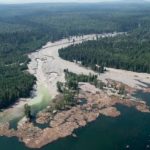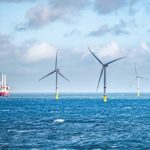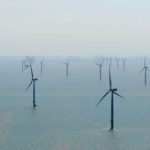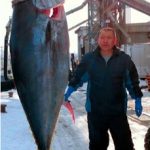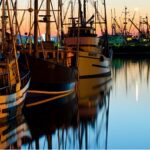Tag Archives: salmon hatcheries
Analysis of Northwest, other salmon hatcheries finds nearly all hurt wild salmon populations
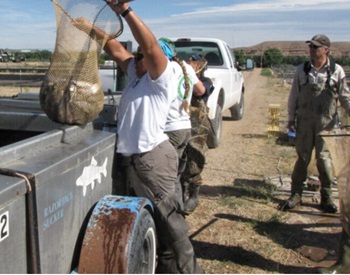 For much of the last century, fish hatcheries have been built in the Northwest, across the U.S. and around the world to boost fish populations where wild numbers have gone down. But an analysis of more than 200 studies on hatcheries programs meant to boost salmonid numbers across the globe – including salmon, trout and whitefish – shows that nearly all have had negative impacts on the wild populations of those fish. Most commonly, hatchery fish reduced the genetic diversity of wild fish, leading to poor health and reproductive outcomes. The findings weigh into a sensitive topic with a big price tag. In the Northwest, hatcheries are supposed to be a solution to declining wild salmonid numbers, caused in large part by hydroelectric dams, overfishing, irrigation and climate change. In the Columbia River Basin alone, officials have spent billions of dollars on nearly 200 hatcheries as well as habitat restoration projects during the past 50 years to improve wild numbers, but research shows those programs are having an opposite effect. more, >>click to read<< 12:34
For much of the last century, fish hatcheries have been built in the Northwest, across the U.S. and around the world to boost fish populations where wild numbers have gone down. But an analysis of more than 200 studies on hatcheries programs meant to boost salmonid numbers across the globe – including salmon, trout and whitefish – shows that nearly all have had negative impacts on the wild populations of those fish. Most commonly, hatchery fish reduced the genetic diversity of wild fish, leading to poor health and reproductive outcomes. The findings weigh into a sensitive topic with a big price tag. In the Northwest, hatcheries are supposed to be a solution to declining wild salmonid numbers, caused in large part by hydroelectric dams, overfishing, irrigation and climate change. In the Columbia River Basin alone, officials have spent billions of dollars on nearly 200 hatcheries as well as habitat restoration projects during the past 50 years to improve wild numbers, but research shows those programs are having an opposite effect. more, >>click to read<< 12:34

HB 52 would hurt commercial fishing and community
Rep. Vance’s Bill HB 52 is irresponsible, anti-commercial fishing, anti-community and presented with false and misleading statements. HB 52 is about removing approximately 123 acres of land from Kachemak Bay State Park that the Tutka Bay Lagoon Hatchery sits on. And basically, handing the land over to the contractor of 30 years, Cook Inlet Aquaculture Association (CIAA). Rep. Vance is charging ahead with HB 52 without basic financial information from CIAA, no business plan, profit and loss statement — nothing but a wink and nod. >click to read< By Alan Parks 09:40
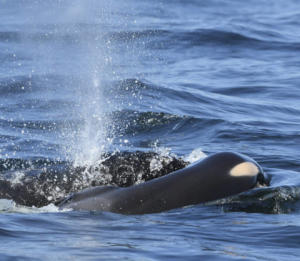
Pinnipeds, not commercial fishing, depriving Orca of salmon
The plight of the orcas has caught the attention of government leaders after a mother orca was spotted carrying her dead baby for nine days in a row; Tom Nelson of 710 ESPN’s “Outdoor Line” podcast has a few ideas for how the state can help save them. Nelson explains that, unlike other types of orca that feast on pinnipeds such as seals and sea lions, the Southern Resident Killer Whales rely on eating salmon to survive. The grieving mother belongs to the Southern Resident pod. There are not enough salmon being produced at hatcheries to feed the Orca in the Puget Sound, Nelson explained, and increasing development has destroyed the salmons’ homes. “That has put a pinch on the diet of these Southern Resident Killer Whale Orcas, >click to read<16:44
Oregon State University study finds salmon hatcheries produce genetically different fish
 New research from Oregon State University suggests hatchery-raised salmon, which are bred to help bolster wild stocks in B.C. and elsewhere, are genetically different from the populations they’re introduced into. Researcher Michael Blouin says scientists have known for some time the offspring of wild and hatchery-raised salmon are less adept at surviving in the wild, negatively affecting the health of wild populations. The question is, what is it about hatcheries that create fish believed to be inferior at surviving in the wild? Read the rest here 09:27
New research from Oregon State University suggests hatchery-raised salmon, which are bred to help bolster wild stocks in B.C. and elsewhere, are genetically different from the populations they’re introduced into. Researcher Michael Blouin says scientists have known for some time the offspring of wild and hatchery-raised salmon are less adept at surviving in the wild, negatively affecting the health of wild populations. The question is, what is it about hatcheries that create fish believed to be inferior at surviving in the wild? Read the rest here 09:27

































